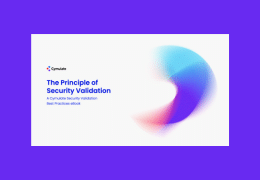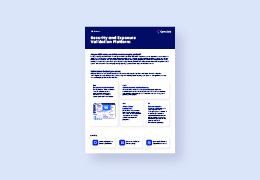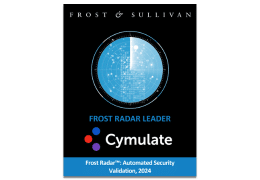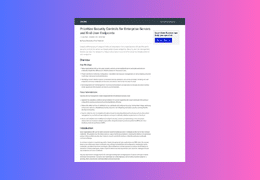Cymulate Wishes You a Cybersafe Holiday Season!
The holiday season is a time of joy and celebration, and as we all know, lots of shopping. With Black Friday, Cyber Monday, and Christmas shopping, the amount of shopping drastically increases, specifically online shopping. In a report released by Deloitte, analysts predict that in 2019, 60% of consumers will make their purchases online and over half of holiday spending is anticipated to take place online. It’s a great season for online retailers, as well as a hot time for cybercrooks to strike.
To Stay Safe, We Advise Everyone to Take a Few Precautions:
- Be very suspicious of emails or e-greetings from unknown senders. The best option is to delete them without opening any attachments or clicking on links. Cybercrooks use them to spread malware.
- Fake advertisements or shipping notifications are used to infect a user’s computer and network with all kinds of malware and ransomware. To stay safe, just delete without clicking on any links.
- Emails asking for confidential information (e.g., confirming passwords, payment details, etc.) never come from reputable companies. The best action is to delete the email. In case you do want to check the request, type the whole domain name into your browser.
- Since it’s also the season of giving, cybercrooks use spoofed email messages and phony posts on social media sites to ask for donations. Those kinds of requests only line the cybercrook’s pockets. It’s best to delete the emails and ignore the fake ads on social media. Instead, donate directly to your favorite charity.
- When shopping online, use only reputable vendors and shopping sites. Check that the site is encrypted; you want your confidential information to be protected. The URL of an encrypted site starts with “HTTPS:” (instead of “HTTP:”) and has a padlock icon. If the padlock is closed, the information is encrypted (and your data is safe).
- Make sure that the payment method you use limits your liability in case of fraud and make sure to keep a record of your online purchases. This allows you to crosscheck them with your credit card/bank statements. Also, read the terms and conditions of the vendor.
If You Find Yourself a Victim of a Cybercrime, What Should You Do?
- Report the attack to the local police and relevant law enforcement agencies. Chances are, you are not the only one and you might help to prevent the attack from harming others.
- Inform your credit card, bank, or other financial institution that you used at the time that you have been hacked. Close all accounts that were comprised or could be at risk. Make sure that there are no unexplainable charges made to your account.
- Change all your passwords and don’t use them again in the future. Make sure that each of your passwords is unique.
- If the organization might be at risk, inform all relevant stakeholders within the organization at once.
We are wishing everybody a cybercrime-free holiday season!
With a breach and attack simulation platform, you can test if your organization is secure against possible threats this holiday season. Click below to start your 14-day free trial.







